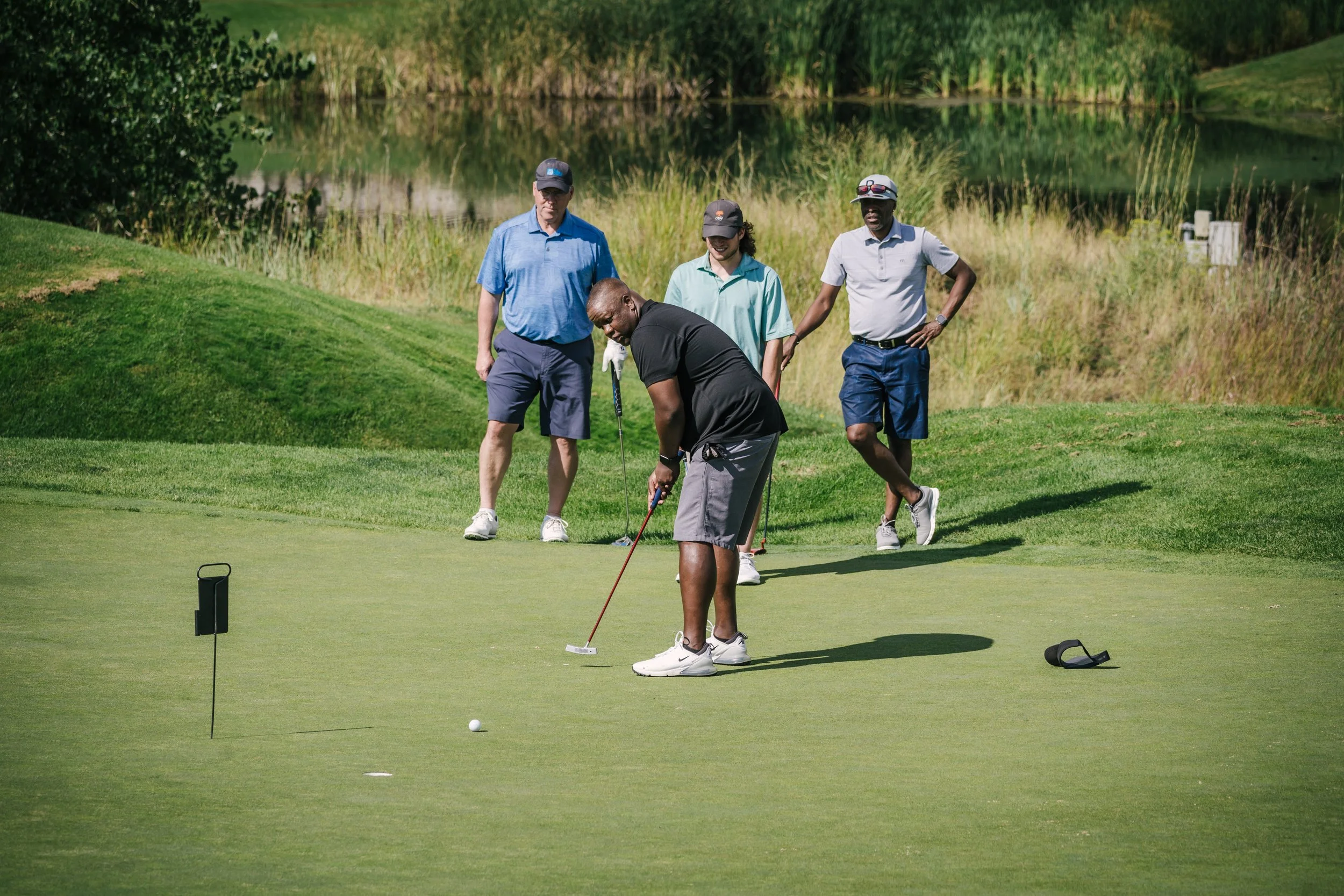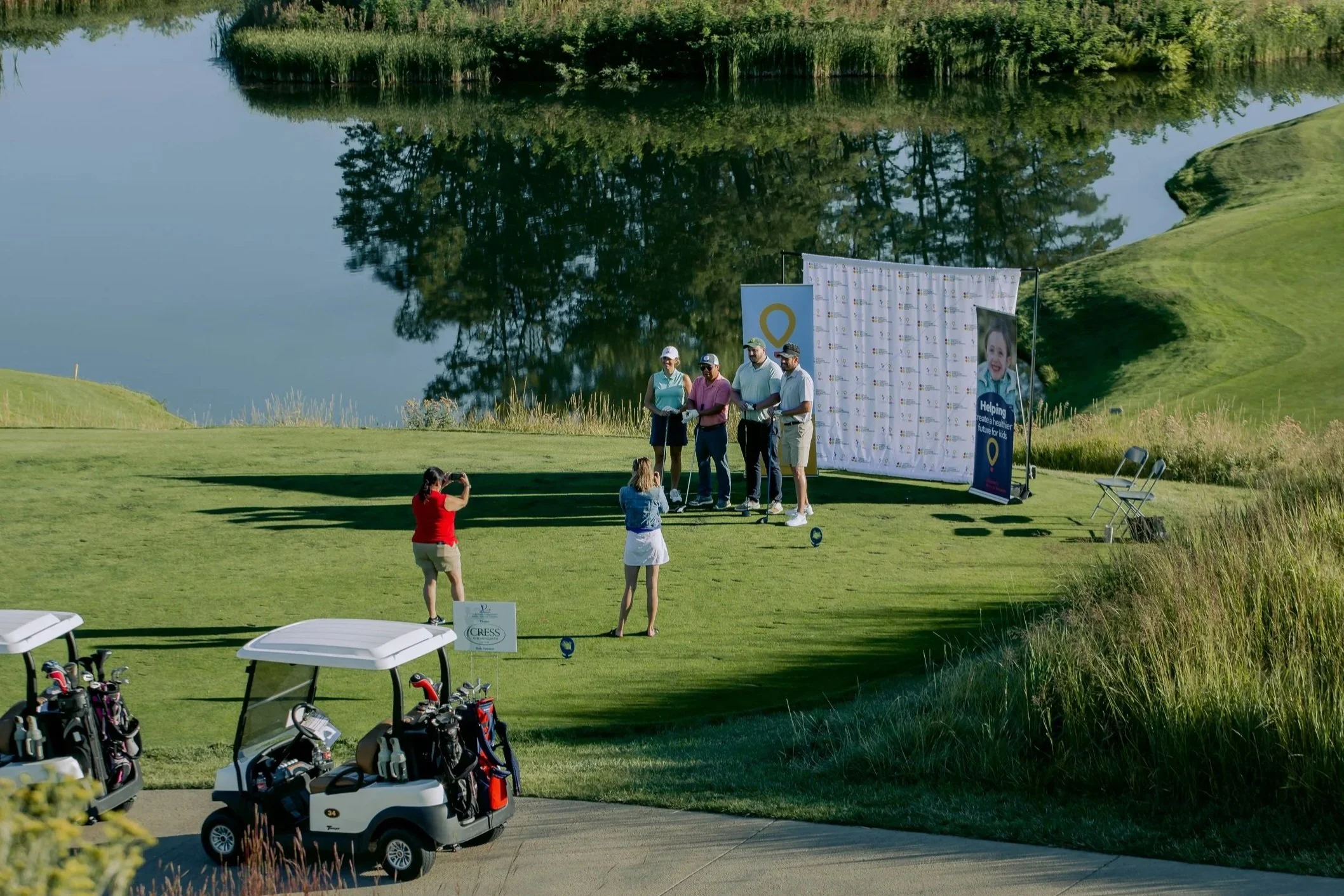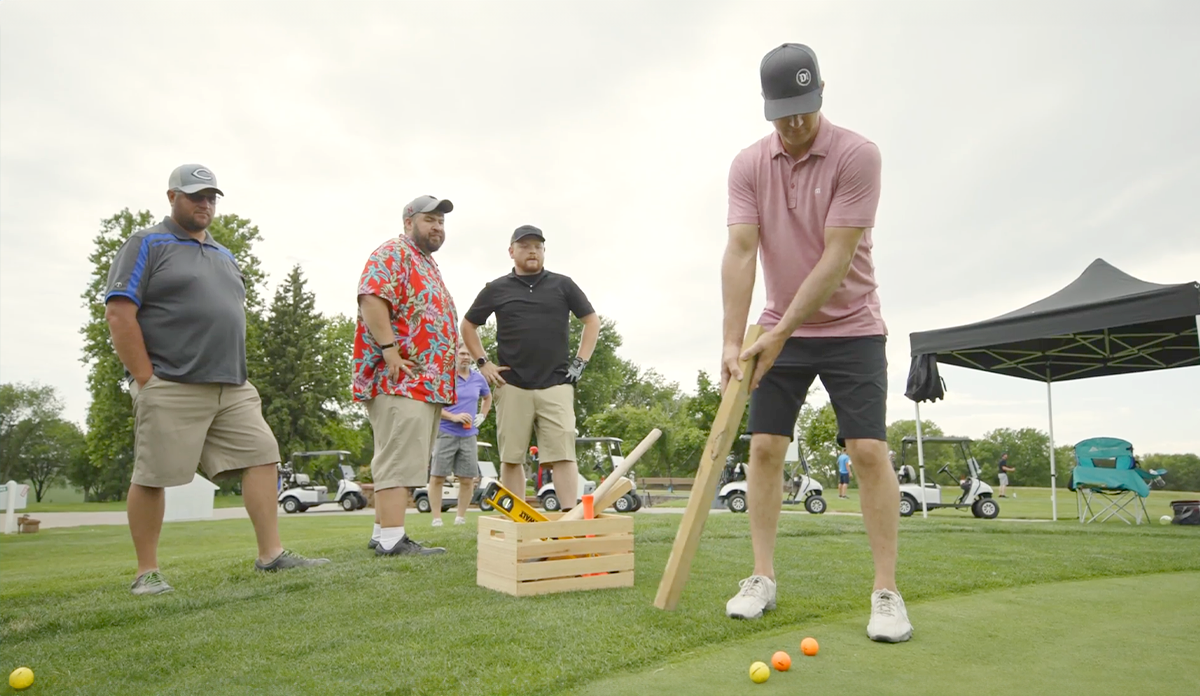Our PGA Q&A blog series leverages the knowledge, experience, and expertise of GolfStatus’ in-house PGA Professionals: Cash Dinkel, PGA and Jason Meininger, PGA. This series installment dives into two topics that play a critical role in a tournament’s success: choosing a date and tournament format.
Cash Dinkel, PGA
Jason Meininger, PGA
Q: What are some things tournament organizers should think about when choosing a time of year for an event?
Cash Dinkel: Big things are weather, daylight, and what else is happening in your community. You want a window where people can actually commit, the course is in good shape, and you’re not fighting holidays, school schedules, or peak vacation weeks. And if you’re trying to maximize sponsorships and attendance, avoid dates where every other nonprofit in town is doing the same thing.
Jason Meininger: I would avoid holidays, like the Fourth of July and Labor Day. I would also probably stay away from the warmest month in your area (July is usually the warmest month where we are in Nebraska) to avoid the heat, unless you play early in the day.
Q: How about choosing a day of the week?
Cash Dinkel: It really comes down to your audience. If it’s corporate-heavy, weekdays are usually easier because people can justify it as a work/networking event. If it’s more community/family-driven, Fridays and weekends can work, but weekends are harder for courses and sometimes harder for golfers who already have plans. Price and course availability are also factors. Weekends are premium times for the courses, which could lead to a higher per-player cost. Private courses may only be available on Mondays, when they are typically closed to their members.
Jason Meininger: In my opinion, it really boils down to cost. It’s more than likely going to be cheaper to have your event on a weekday versus a weekend.
Tournament organizers should consider their audience, price, and course availability when choosing a date for their golf event.
Q: What’s your favorite day of the week to play in a charity golf tournament?
Cash Dinkel: I personally love a Friday or Monday event. It’s an easy excuse to take a long three-day weekend, and then it doesn’t typically interfere with any weekend plans or activities that my family may have.
Jason Meininger: I prefer a Friday afternoon tournament, if the course allows it. That way, golfers can work a half day before leaving to play in the event.
Q: What was your favorite day of the week to hold an outside outing at your golf facility?
Cash Dinkel: My favorite day to hold outside outings at my facility was Monday. Monday was perfect because we were closed for normal play, so the event wasn’t interfering with our day-to-day golfers at all. We also usually saw strong participation on Mondays, which gave the whole day a really high-end vibe. And since everyone has to work the next day, those Monday outings typically start early and wrap up earlier, too. The day moves well, keeps the pace in check, and makes sure the golfers are having fun… but not get out of hand!
Jason Meininger: When I was at golf facilities, I preferred to have them on Mondays. That was usually the slowest day of the week, so it was an opportunity for the course to generate additional revenue.
Q: What are generally some of the busiest times of year at a golf facility?
Jason Meininger: Specifically in northern states, you’ll see things start to pick up in April and go through October to November; it’s similar in Canada. In the southern states, March to June are busy, things taper off in the hot summer months, and peak again in the fall through early to mid-December. Places like Florida, California, and Arizona see golf events year-round due to their warm climates.
Cash Dinkel: In most places, it’s late spring through early fall, basically when the weather is consistent, and the course is in really good shape. For most of the U.S., late May through September is usually the sweet spot, and then you’ll also see random spikes around holiday weekends and peak summer travel windows.
Late May through September are prime times of year for charity golf fundraisers.
Q: In your experience, what is the most popular day of the week for charity golf tournaments?
Cash Dinkel: Friday is usually the busiest for charity outings. A lot of groups like the “play golf and roll into the weekend” vibe, and it’s an easy sell for teams and sponsors.
Jason Meininger: It really varies, but I would say Friday or Saturday are the most popular, then Monday (especially at private facilities).
Q: What are the most common tournament formats for golf fundraisers?
Cash Dinkel: The most common ones I see are a four-person scramble, shamble, and best ball/four-ball. Scrambles are the go-to because they keep the pace moving, they’re fun for every skill level, and they help you sell teams and fill a field without scaring off the casual golfers.
Jason Meininger: I would say over 90% of the events we work with at GolfStatus are a four-person scramble format. It really works well to attract casual and avid golfers.
Q: What are some other tournament formats you’ve run into?
Jason Meininger:
Best ball: Each player on a team plays their own ball throughout the hole. After the hole is completed, the lowest score or scores are recorded for the team total.
Individual: Each golfer plays their own ball, and each player records a score.
Cash Dinkel:
Chapman/Pinehurst: Both players hit, swap balls, then alternate shots.
Alternate shot: Each team has one ball, and golfers take turns taking shots. It’s definitely harder, but fun for competitive groups.
Stableford: This format has points-based scoring and encourages aggressive play.
Skins game: Each hole is its own prize, and ties carry over. There’s usually a cash prize for winning each hole.
Ryder Cup-style: Teams compete across multiple formats like best ball and alternate shot.
Scrambles are a great choice for charity golf events because they appeal to golfers of all skill levels and keep play moving.
Q: What format do you typically recommend for charity golf tournaments, and why?
Jason Meininger: Hands-down, a four-person scramble. A scramble allows people of all skill levels to participate a little or a lot based on their skill level.
Cash Dinkel: By far the best option is a four-person scramble. It’s the easiest format to understand, it keeps golfers in a good mood, it helps pace of play, and it’s the best setup for fundraising add-ons like mulligans, string, throw-a-ball, and all the fun stuff that helps drive more dollars.
Q: Does live scoring work for any tournament format?
Jason Meininger: GolfStatus’ live scoring app works for about 90% of formats, including scrambles. We can create a live leaderboard for almost any format. There are a few more complicated formats that it isn’t able to live score.
Cash Dinkel: Most of the time, yes. Live scoring works great for scrambles, shambles, best ball, and even Stableford if you’ve got it set up correctly. It gets a little trickier with complex formats like Ryder Cups, member-guest, and round robin style formats, but for the typical charity event formats, it works super smoothly.
Ask the Pros!
Do you have a question for GolfStatus’ PGA Professionals? Email it to [email protected] with “PGA Pro Question” in the subject line, and it might be featured in a future blog post or an upcoming GolfStatus webinar!
Planning a golf tournament? You can get started with GolfStatus at no upfront cost—get an event website, online registration, communication tools, premium digital sponsor exposure, revenue-boosting add-ons, and more, plus access to GolfStatus’ responsive in-house client success team (including knowledgeable PGA Professionals and Fundraising Specialists). Click the button to book a meeting and learn more.















